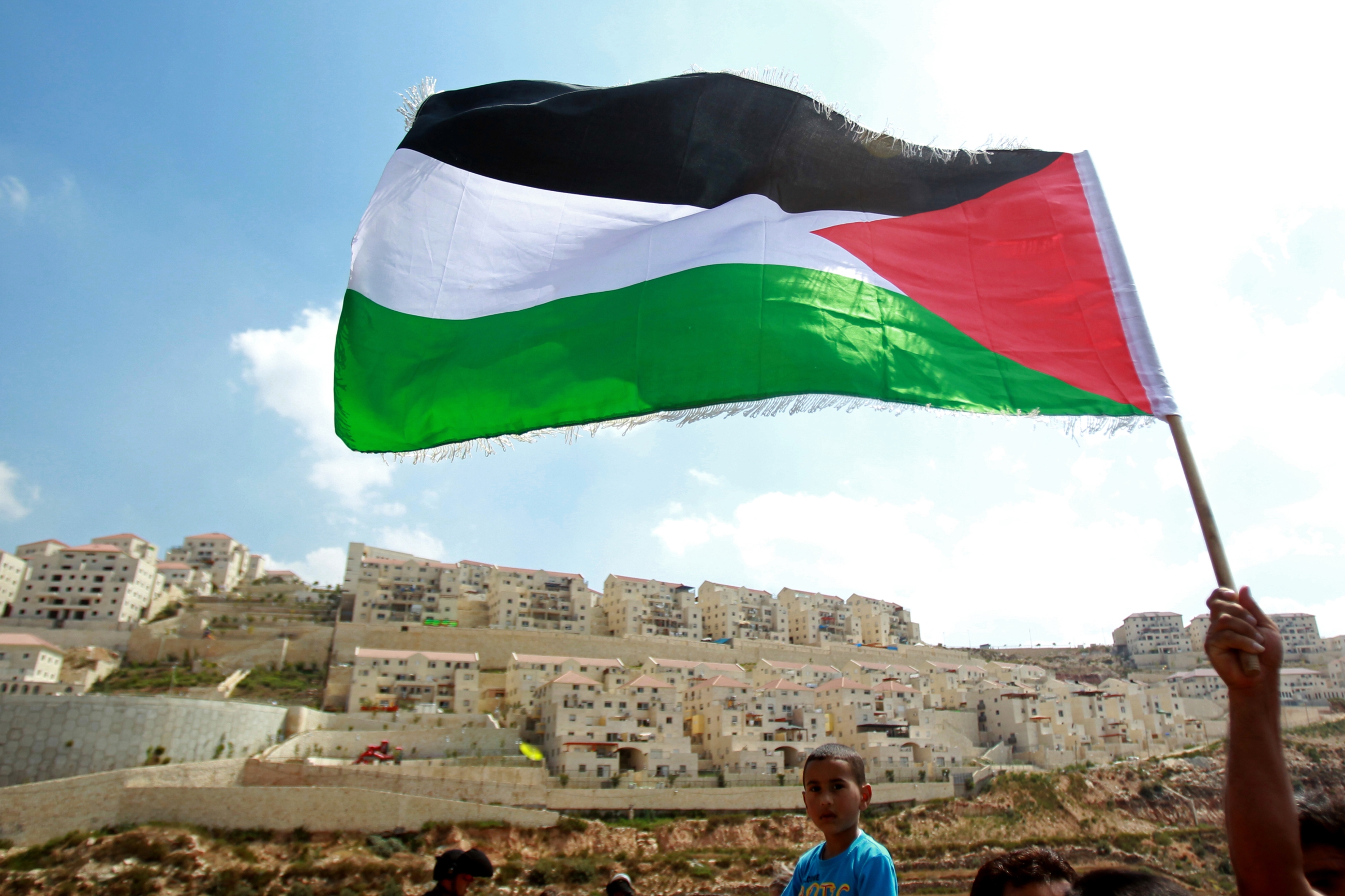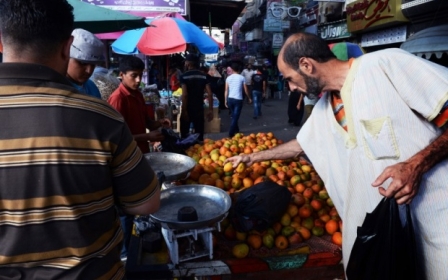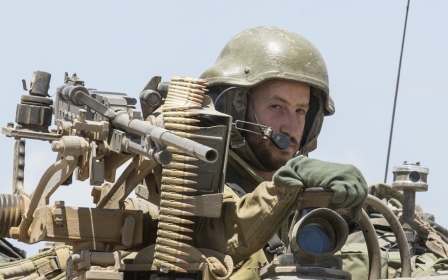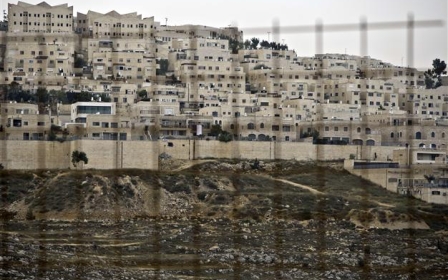Israel creating 'culture of self-censorship'

HAIFA: “Crackdowns on activism isn’t something new,” Nadim Nashif, coordinator of 7amleh (pronounced “Hamleh”) said, sitting in his office in Haifa. “It has only intensified.”
7amleh is an NGO that promotes the use of social media for cultural activism and to create bonds between Palestinians in Israel and the occupied territories. “Social media is monitored on a daily basis. We know this for sure,” Nashif continued.
Since Operation Protective Edge, the third war between the ruling party of the Gaza Strip, Hamas, and Israel since 2008, crackdowns on expression inside Israel have increased sharply. Many of these violations have taken place as a result of social media - statuses on Facebook and Twitter – and have had serious consequences for those who post them.
Some have been expelled from academic institutions, some have lost their jobs, and others have been arrested.
Long waits, interrogations
Rafat Awaysha, a 20 year-old activist and student at Ben Gurion University of the Negev, felt the effects of social media monitoring after sending out an invite to protest Operation Protective Edge.
“I received a call after half an hour from the police saying that I had to go to an interrogation,” Awaysha told Middle East Eye over the phone. After his first interrogation, his family informed him that their home had been searched. Soon after, he received a message from a different police station informing him that additional questioning was required.
“I told them I just got out of an interrogation. They said this one was different, and came to the [student dormitory] to get me,” Awaysha said, remembering the embarrassing scene when he was forcibly removed from his room by the police.
Awaysha was placed in a room with a temperature “below 16 degrees” and made to wait for five hours before he was asked a question. “The first man interrogated me for only 45 minutes, and then I was forced to wait another five hours. At that point, a man from [the Israeli secret police] entered the room to begin the next round of questioning.”
It was 5 am when the activist was released. After returning home with his family, Awaysha remained under house arrest for an additional five days.
He contends that there was no reason for his arrest and interrogation. “The invitation had no threats or harassment. It just said ‘Let’s go protest and scream for our brothers in Gaza,’” he explained, referring to the language of the Facebook invite.
Academic expulsion
For some, the consequences come directly from academic institutions. A student at Hadassah Academic College in Jerusalem, who wishes to remain anonymous, faced direct action from her school. After posting an undisclosed status on social media, the college administration expelled the student and barred her from entering the campus.
In a publicly-circulated letter, the president of Hadassah College, Dr. Bertold Fridlender wrote to her that “[we] read your post with shock and disgust… the college management has decided to prohibit you from entering the campus for any reason, academic or other.”
When approached for comment, Hadassah Academic College declined due to ongoing litigation surrounding the student’s expulsion.
Nashif commented that while consequences are not usually this severe, censorship is common and institutionalised on Israeli campuses. “In Haifa University, there are many restrictions. If you want to organise a demonstration, you should apply a few days before,” he said. “Any materials that you want to [distribute] must be translated to Hebrew, so that [university officials] can decide if it’s good to hand out.”
Restrictions like these make fast, direct action nearly impossible. Nashif views this extensive oversight of demonstrations as a soft form of censorship. “If something happens and students want to react immediately, they cannot.”
Fired for expression
Students are not the only ones discovering that comments and opinion carry a high price. According to Kav LaOved, an Israeli organisation that provides assistance for work-related difficulties to Israeli citizens and foreign labourers alike, there has been huge increase in employees losing their jobs for expressing themselves online.
“We received tens of complaints from Palestinian workers, citizens of Israel, who were fired, asked to stay at home [for long periods], because of posts they put on private accounts,” Gadeer Nicola, a lawyer and head of Kav LaOved’s Nazareth branch, told MEE in an interview. “The workers who approached us were from all professions - doctors, nurses, cleaners, people in the tech industry - all kinds.”
In an open letter to the Ministry of the Economy and the Commission for Equal Employment Opportunities, Nicola expressed the concern of four groups concerning the firing of Arab employees due to expression of opinion against Operation Protective Edge.
“There’s an Israeli law that is very clear on this issue, Nicola stated, speaking about legal protections workers are afforded. “It forbids discrimination on the basis of race, sex, religion and political affiliation.”
Right-wing Israeli groups often find the employment roster of local businesses in order to monitor their social media posts. If an employee posts something critical of Israel, the groups make the posts public. These groups employ a form of public “shaming” by posting the opinions of employees on the business’ social media accounts.
Nicola represented Palestinians wrongfully terminated in an Israeli labour court and it ruled that social media expression was “totally under the auspices of freedom of expression…they decided there was no legal basis for such a decision from the employer.”
Self-censorship
In spite of this, many Palestinians have decided not to return to their former jobs. Those who do feel that their speech is now limited. Nicola feels that the damage done was “very serious.”
“They are more reluctant to express their ideas. They think that even if they win in court, it doesn’t mean that the employer won’t find another reason the next day to send them home,” Nicola concluded.
The entirety of the Palestinian minority of Israel, nearly 20 percent of the population, feels this damage. “Many people [understood] social media as private, they were not aware that they were being monitored,” Nashif reflected. “Now, after all the examples of activists and normal people being fired, kicked out of university and arrested, [Palestinians] realise that it is a public sphere.”
They must be guarded in the public forum that is social media. “Now they monitor themselves,” Nashif said with a concerned look. “The result is a culture of self-censorship.”
However, not everyone will be silenced. When asked if he planned to continue raising his voice in dissent, Awaysha said he was determined to express himself as all citizens of liberal democracies are entitled. “Protesting is a legal right in the state of Israel. No one has a right to arrest me for expressing myself.”
New MEE newsletter: Jerusalem Dispatch
Sign up to get the latest insights and analysis on Israel-Palestine, alongside Turkey Unpacked and other MEE newsletters
Middle East Eye delivers independent and unrivalled coverage and analysis of the Middle East, North Africa and beyond. To learn more about republishing this content and the associated fees, please fill out this form. More about MEE can be found here.




